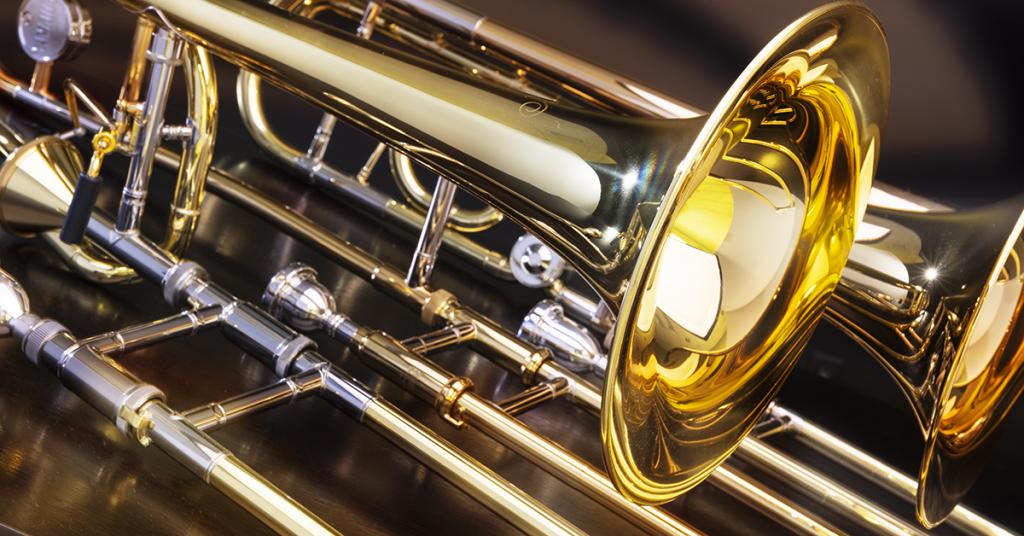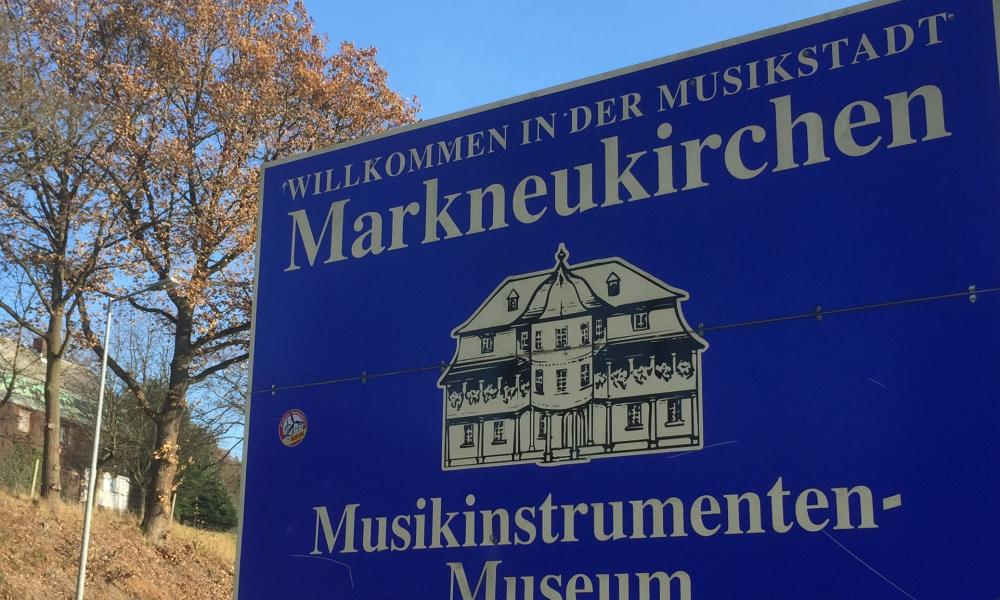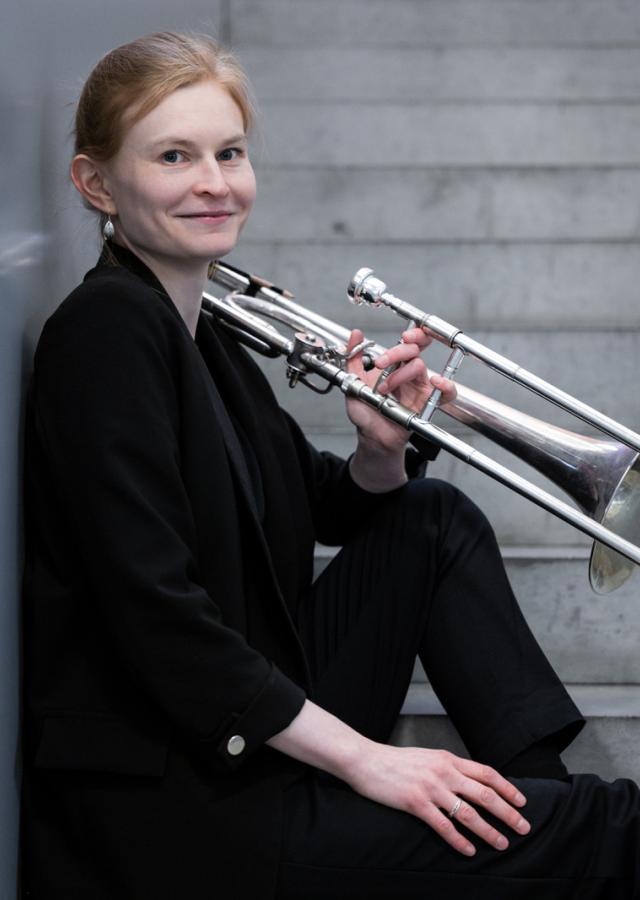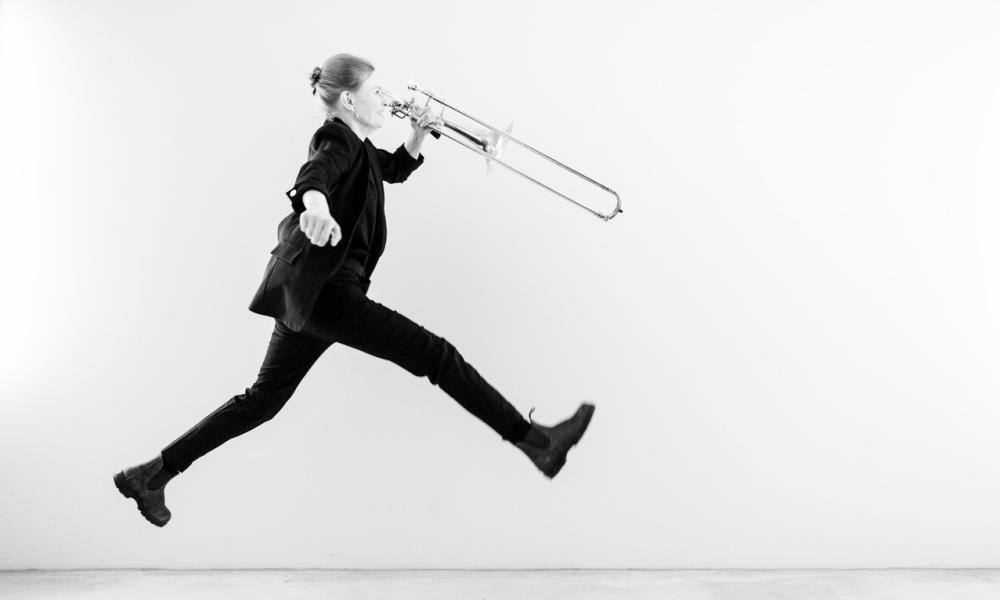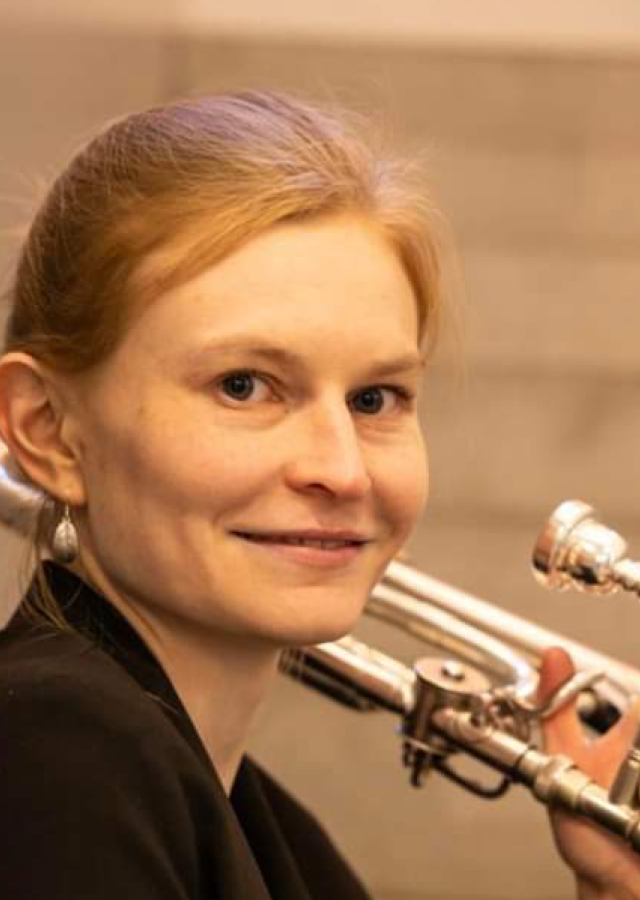The ”genius loci” is an important factor for a competition, and Markneukirchen is no exception to this.
It is a beautiful town, it´s not difficult to get around, and people tend to stay together. Residents and also instrument makers are actively involved in the competition and listen, or exhibit their instruments, or help. It feels like a joint project, and that is very motivating for everyone involved. Of course, they have done this a few times before: this year´s competition was their 59th edition.
How well known is Markneukirchen outside of Europe?
Looking at the list of participants, we have people from USA, China, Taiwan, Japan… this competition is very well known, and a prize from Markneukirchen is worth a lot in the trombone community. We don´t have that many competitions- there is ARD, Aeolus, Porcia, Prague, there used to be Geneva. There are also the International Trombone Association competitions and a few others. They are all important for us, because we don´t have 20 competitions each year like piano. Depending on the generation, there will only be a trombone competition every few years or so. Recently, we had Prague and Porcia, and now Markneukirchen- these short intervals are rather the exception. Usually we get one major competition every few years, and then of course everyone from everywhere in the world will go.
First Lady of the Trombone
Recently appointed professor in Berlin, Louise Pollock talks about her instrument, the recent competition in Markneukirchen, and some great new repertoire
WFIMC: Eight years ago, you won First Prize at the Aeolus Competition in Dusseldorf. What comes to mind first when you remember that time?
Louise Pollock: I really enjoyed playing with the Düsseldorfer Symphoniker, it is a great orchestra and it was simply a wonderful experience. It was beautifully organised and, thinking back, I am still motivated and inspired by the opportunity to take part in the competition. Of course I was delighted to have won. Winning the first prize and audience prize was wonderful, but I came to the competition with the goal to learn from my colleagues. I listened to the other competitors and found a lot of inspiration. And I learned a lot from the jury. Aeolus remains a very important moment in my life.
Did you do other competitions after Dusseldorf?
No, that was the last one. I already had my position as Principal Trombone at the Gothenburg Opera in Sweden.
Let´s talk about a more recent competition: Markneukirchen. The city is quite a special place.
Markneukirchen has been an instrument maker town for centuries. For us trombone players it is very special and some people make a pilgrimage from all over the world to Markneukirchen to have their trombones built. And there is an instrument museum with, for example, a huge tuba on display (which is also interesting for trombonists). But moreover, you just cannot help to notice that the entire town is full of music. “Welcome to the music city of Markneukirchen” is what a sign says when you enter the town.
And then you arrive at the competition, and everything is perfectly organized. Everything has been thought of, everything has been prepared, there are no misunderstandings or problems, they know what they are doing. We had 68 applicants for trombone, and 43 came, performing the first two rounds in the old palace, a beautiful venue with good acoustics for trombone. And it was also very nice that many of the candidates stayed and sat in the audience to support their colleagues. We see ourselves as a community, and even if we play “against” each other in a competition, we still support each other. I think that´s a wonderful thing.
What does Markneukirchen offer in terms of career support? With other instruments, you can become a soloist, a chamber musician, you can join an orchestra.. trombone does not really have that many options. There are virtually no international soloists…
Actually, yes, there are a few trombone soloists. Many of them have won a competition, Markneukirchen for example, and become famous as a result. But what is also fantastic in Markneukirchen, winners get concerts and engagements with Kursächsische Philharmonie, for example, and - this is very important for us - you can also win instruments. Prizewinners can go and choose it themselves from an instrument maker, which is great.
From your point of view, what advice do you give your students? How do you see the future prospects of your students? Good orchestras are becoming fewer, public support for orchestras is being cut, there are few jobs in the first place… but at the same time more and more people who want to study and instrument.
My teachers always said to me: "If you're very good, you'll always be needed, because the music world needs outstanding players.” Excellence always wins. In other words, if you work really hard and are good at what you do, then you also have a chance of having a very good career.
If there are orchestral openings in Germany now, how many people will apply for one trombone position?
There are huge numbers of applicants for every position. But if you have worked hard, practiced a lot and are well prepared, you have a good chance of landing a position.
That aside, I think what really makes a positive difference nowadays are all the opportunities we have to play online and learn from each other in an online context. Even if most people are not in Markneukirchen: everyone is following the competition online. Who will continue to the next round? Who is playing well? Everyone is talking about it, and everyone has the same information immediately from the internet. It can motivate and inspire, and that´s a very encouraging thing.
It´s also significant for the development of our instrument. The level is getting better and better and we are discovering more and more ways of using the instrument, perhaps even in a vocal context: to make a trombone almost sound like a human voice.
Back to the competition. Tell us a bit about the different rounds and pieces.
We had 43 candidates in the first round, 18 in the second, 5 in the third and 3 in the Final round. The special prize for the best interpretation of the newly written work is also awarded after the second round, and we had a really great work by Nils Wogram called “Posaunenmangel”- lack of trombones. It has a bit of “theater” in it. There are four chairs on the stage and four music stands, set up in the same way one would set up a trombone section in an orchestra. The trombonist – the piece is for solo trombone - comes in and wonders why his colleagues aren't there, starts playing on his own and then moves from the first chair to the second chair, to the third and to the fourth, all while playing simultaneously. It is a truly spectacular piece that involves lots of multiphonics, which is a technique where the performer produces more than one note at the same time on the trombone. It was incredibly inspiring to hear all the young players find their own interpretation and play with such advanced technical skills. Personally, I had a lot of fun because all the candidates did the acting a little differently, and some had really creative ideas that surprised us. They came in wondering: "Where are my colleagues?”, looking for them behind the piano, or inside the piano… I don’t know, but if I’m missing a colleague at a rehearsal, my first thought is not ”He must be hiding inside the piano”. I found that very entertaining. We had a lot of fun there.
Nils Wogram: Posaunenmangel playing instructions
Another piece that could be chosen in the first round was “Basta” for trombone solo by Folke Rabe. In the playing instructions it says “Alert entrance”, so often this is done by running on stage. We had a carpet on stage, and on the first day someone ran so fast that when he reached the stage, he slipped and slid for about a meter on the carpet before starting to play. Luckily, he didn´t fall, but it was close… it was very dramatic.
Louise Pollock currently serves as Professor for Trombone at Berlin´s Hochschule für Musik Hanns Eisler. Previously, she was principal trombonist at the Gothenburg Opera/Sweden from 2015 to 2023 and in parallel led the trombone class at the University of Gothenburg Academy of Music and Drama. Prior to that, she was engaged by the Stuttgart Philharmonic Orchestra for three years. She has performed as a soloist with the Düsseldorf Symphony Orchestra, the Bjergsted Blåsensemble, the Gothenburg Opera, Theater für Niedersachsen Philharmonie, and the Duisburg Philharmonic, among others.
She has been awarded numerous prizes at national and international competitions, was a scholarship holder of the 2014 German Music Competition of the German Music Council and received the 1st Prize and Audience Award at the International Aeolus Wind Competition in Düsseldorf in 2016.
As a jury member she is requested for international competitions and invited as a soloist and teacher to masterclasses and festivals. Some examples are: Brassweek Samedan in Switzerland, Tourbon Brass Festival in Chile, Tromboholizm Trombone Music Festival in Poznan and Corno Brass Music Festival Zielona Gora in Poland, to the Norwegian Bjergsted Brass Festival Stavanger, VeronaBones in Italy, Galaico Brass Festival in Spain, the Low Brass Network and the International Trombone Festival in the USA. In 2023 she was elected as President of the German Internationale Posaunenvereinigung e.V. as well as to the "Board of Advisors" of the International Trombone Association.
Louise Pollock grew up in Switzerland and graduated as the best student of the year from the Mathematisch-Wissenschaftliches Gymnasium Zurich. She completed her Bachelor's studies with Prof. Branimir Slokar at the Hochschule für Musik in Freiburg i. Br., and continued her Master's studies with Prof. Henning Wiegräbe at the Staatliche Hochschule für Musik und Darstellende Kunst Stuttgart. She is a Conn Artist and performs exclusively on a Conn 88H built in the early 1950s.
©WFIMC 2024/FR
